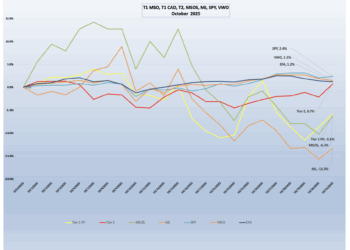A Connecticut hemp farmer is suing his state over social equity rules that have prevented him from converting his farm into a licensed cannabis cultivation site.
This is the latest legal attack on Connecticut regulation from a state hemp industry that briefly thrived but is now fading away.
“As of the date of this Complaint, a total of zero non-social equity marijuana cultivator licenses have been issued in Connecticut,” said the nine-page complaint filed Oct. 14 in the U.S. District Court of Connecticut. “No lotteries have ever been conducted for non-Social Equity applicants. No lotteries are currently being conducted for non-Social Equity cultivator licenses, and no future lotteries have been scheduled.”
Brant Smith, a Cheshire, Conn., hemp farmer, is the only named plaintiff. He is suing Gov. Ned Lamont, Attorney General William Tong and Bryan Cafferelli, commissioner of the Department of Consumer Protection, which oversees the state’s cannabis program.
The Department of Consumer Protection declined to comment, while Smith’s attorney did not respond to a request for comment.
Cultivators in Connecticut must qualify as social equity candidates, which the state defines based on income and whether they live in one of the state’s “Designated Impact Areas” that were negatively affected by the war on drugs. The license also carries a $3 million fee, which means that every one of the aspiring operators below the income threshold would need a wealthy benefactor.
Few cultivators lead to supply shortage
Due to the difficult conditions for licensure, Connecticut has consistently struggled with supply problems.
Since adult use was legalized in 2021, the state has approved 12 final licenses for cultivation, according to the CRB Monitor database.
Of those, the state’s four original medical cultivators, Curaleaf, Zen Leaf, Theraplant and Advanced Grow Labs were granted hybrid licenses, making them the first producers for the state’s adult-use market.
So far, Rodeo Cannabis Co. and Fine Fettle are the only licensed newcomers to the cultivation market that were able to open for business, according to the state’s own data.
Given the supply challenges in the state, hemp farmers have long advocated for the opportunity to become cannabis cultivators.
Smith started Hemp House Farms in June 2019, shortly after the 2018 Farm Bill went into effect. This legal change descheduled hemp as long as it contained less than 0.3% delta-9 THC.
Connecticut started its hemp licensing program in 2019. In 2020, the total number of licensed hemp farms in the state peaked at 140, according to the state’s data. By 2024, that total dropped to 60. There were 172 acres of hemp planted in 2019. Last year, there were only 21.3 acres.
Another lawsuit challenges CT hemp law
The state’s hemp industry has struggled since the Connecticut legislature passed HB 5150, which Lamont signed in May 2024. That law restricted intoxicating hemp products to licensed dispensaries, while THC beverages can only be purchased in dispensaries or liquor stores.
A group of hemp farmers that sued the state over its hemp regulation claimed in August 2025 that there were only about 25 active hemp licenses in Connecticut. The lawsuit was filed on Aug. 26 in the U.S. District Court of Connecticut. The plaintiffs are seeking an injunction halting enforcement of recently enacted hemp laws in Connecticut, arguing that the regulations conflict with federal law.
That case, which Smith is not involved in, still awaits a response from the state.
“By favoring in-state Social Equity Individual applicants and discriminating against all others, including out-of-state applicants, Connecticut’s marijuana licensing program amounts to economic protectionism and improperly serves to benefit only in-state economic interests in general, and Social Equity Individuals specifically,” said Smith in his complaint.
Aside from supply concerns, Smith also argued that the state’s social equity rules violate the dormant commerce clause of the U.S. Constitution. He cites a similar ruling from earlier this year, where the court struck down New York’s social equity licensing priority.
The Second Circuit Court of Appeals ruled in favor of Variscite NY on Aug. 12, explaining that the dormant commerce clause does apply to cannabis despite it being illegal at the federal level.
The Variscite case was brought by attorney Jeffrey Jensen who has sued over social equity protections for cannabis license applicants in California, Washington, Maryland and Rhode Island. Jensen twice sued New York over social equity, with the first attempt resulting in a temporary injunction against the issuance of licenses, while the second attempt is what landed in the circuit court of appeals.
Jensen has been less successful outside of New York.
He has two cases pending in the Ninth Circuit Court of Appeals after losing in two separate lower federal courts in California. His case in Maryland is before the Fourth Circuit Court of Appeals after taking a similar loss in U.S. District Court, while his cases in Rhode Island and Washington are pending at the U.S. District Court level.












